Search the Special Collections and Archives Portal
Search Results
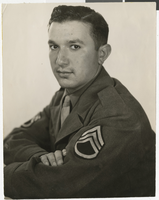
Photographic portrait of Henry Schuster, 1946
Date
Archival Collection
Description
Bust-length portrait of Henry Schuster in military uniform.
Image
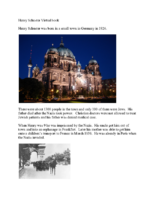
Biographical essay by Henry Schuster, 2014
Date
Archival Collection
Description
This essay describes how Henry Schuster was able to leave Germany through the kindertransport to France in 1939, and arrived in the United States in 1941.
Text
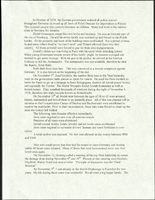
Essays on the Holocaust by Henry Schuster, undated
Date
Archival Collection
Description
Group of essays written by Henry Schuster about his experiences in Europe during the Holocaust and his life in the United States. Schuster was placed in an orphanage after his father died and came to the United States via France and the kindertransport with hopes of being reunited with his family.
Text
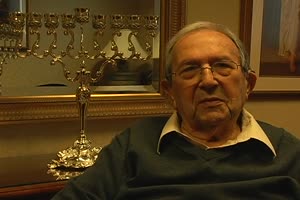
Video, Generations of the Shoah interview with Henry Schuster, by Esther Finder, 2013
Date
Archival Collection
Description
Interview with Henry Schuster by Esther Finder.
Moving Image
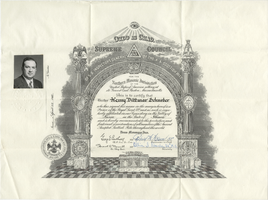
Masonic certificate with inset portrait of Henry Schuster, 1960
Date
Archival Collection
Description
Certificate of membership for Henry Dittmar Schuster in the Scottish Rite, Northern Masonic Jurisdiction.
Mixed Content
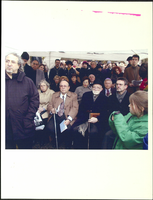
Photograph of Henry and Anita Schuster at unidentified event, circa 2000
Date
Archival Collection
Description
Anita and Henry Schuster (beige coats) are seated with others at an event.
Image

Transcript of interview with Henry and Anita Schuster by Claytee White, March-April 2011
Date
Archival Collection
Description
In this oral history, the long married couple Henry and Anita Schuster recall the history of the 1930s and how they eventually met and created a life together. Their childhoods were distinctively different, but charter a future where they would inevitably meet. Born in Germany in 1926, Henry recalls the dawn of Hitler and the Nazism. His mother would arrange for his evacuation to France, where he would not know her fate or that of his two sisters for a number of years. Along with hundreds of other displaced children, he escaped to America and lived with relatives in Louisiana where he finished his schooling and joined the US Army. Anita on the other hand grew up with her family in New York. They share the story of meeting when she was 16, falling in love and marrying in 1948. They had four children and moved several times before settling in California. They retired to Las Vegas in 1993. Henry's recollections include childhood memories of the Holocaust and its affect on his family, including the loss of his mother and one of his sisters. Finding his surviving sister Bertel (Betty Kale) after the war is a heartwarming tale of survival. The Schusters are part of the approximately 300 members of the Holocaust Survivor Group that has settled in southern Nevada and Henry was President Emeritus of the group. He published his memoir, Abraham's Son-the Making of an American, in 2010.
Text
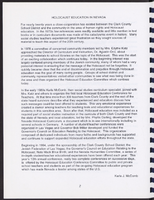
Holocaust Education Conference program, 1997
Date
Archival Collection
Description
Booklet program from the Holocaust Education Conference, 1997.
Text

Transcript of roundtable interview with the Holocaust Resource Center: Myra Berkovits, Susan Dubin and Doug Unger, by Barbara Tabach, September 4, 2014
Date
Archival Collection
Description
Interview with Myra Berkovits, Susan Dubin and Doug Unger of the Holocaust Resource Center. In this interview, the group discusses the beginnings of what is now the Sperling Kronberg Mack Holocaust Resource Center. Edythe Katz-Yarchever is discussed as the catalyst for establishing the center and getting others involved with the Governor's Advisory Council on Education Relating to the Holocaust. Berkovits talks about her role as a liason for Holocaust education in the Clark County School District and the student-teacher conferences held each year with funding from Sheldon Adelson. Unger discusses expanding the outreach to the Washoe County School District with assistance from Atlantis Hotel (Reno, Nev.) owner, John Farahi and Judy Mack. They talk about the previous locations of the Holocaust Resource Center on Maryland Parkway, then Renaissance Drive, and the affiliation with the Jewish Federation and the Jewish Family Service Agency. After funding and personnel issues around 2011, the advisory council and the library went through a re-structuring and hired Susan Dubin who organized and catalogued the library collection. The library is now accredited by the Association of Jewish Libraries.
Text
